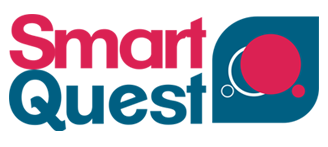
 Author: :Hafsa Casseem
Author: :Hafsa Casseem
Junior Marketing Executive
I didn’t always think emotional intelligence was a big deal. I thought being “professional” meant being efficient, composed, quick to solve things. I didn’t realise how often that meant skipping over what I was really feeling — or what others were, too.
But then I came across Brené Brown’s TED Talk on The Power of Vulnerability, and something clicked. She spoke about how hard we try to protect ourselves from feeling too much. And suddenly, I saw myself. The parts of me that push past discomfort, the parts that avoid “emotional stuff” to stay focused.
That’s when I realised: emotional intelligence isn’t a soft skill. It’s a real-life skill. One we use every single day — whether we know it or not.
Growth: Learning to pause instead of push
For a long time, I thought growing meant proving myself. Taking on more, doing things fast, getting it right.
But growth started showing up in smaller, more surprising ways. Like noticing when I was reacting out of insecurity. Or catching myself mid-frustration and asking, what’s really going on here?
That pause — that self-awareness — didn’t come naturally. But once I started practicing it, I realised how much energy I was wasting trying to seem “on top of things” instead of actually understanding myself.
Emotional intelligence, as Daniel Goleman puts it, begins with self-awareness. And for me, that’s been a slow but steady learning. To not just react, but reflect. To not just do more — but to understand more.
Connection: The part of work we don’t always talk about
We spend a lot of time working with people — but how often do we actually connect with them?
There have been days when everything technically ran smoothly — deadlines met, meetings done — but something still felt off. I couldn’t put my finger on it, but the energy just wasn’t there.
Over time, I’ve come to see that when people feel safe, heard, and respected — everything shifts. Conversations become easier. Collaboration flows better. Trust builds.
And it often starts with simple things: asking how someone’s doing and actually listening. Owning up to a mistake without defensiveness. Letting someone else’s idea take the lead.
Those things don’t always show up in performance reviews — but they shape culture more than we think.
Impact: Less noise, more meaning
Looking back, the moments that made the most impact weren’t the most polished. They were the ones where I showed up as myself — unsure, maybe, but open. Willing to ask better questions. Willing to listen even when I didn’t agree.
Emotional intelligence doesn’t make everything easier — but it does make things clearer. You start seeing patterns in yourself. You start handling tough moments with more calm. You start becoming someone people trust, not because you have all the answers, but because you’re real.
If I’ve learned anything, it’s this: Emotional intelligence is the compass we didn’t know we needed. It helps us navigate the messy, beautiful, complicated parts of being human — at work, at home, in life.
It helps us grow without losing ourselves. Connect without pretending. And make an impact that lasts longer than just a good result.
And like any compass, it only works when we stop long enough to check where we truly are.
The power of vulnerability | Brené Brown | TED : https://youtu.be/iCvmsMzlF7o


